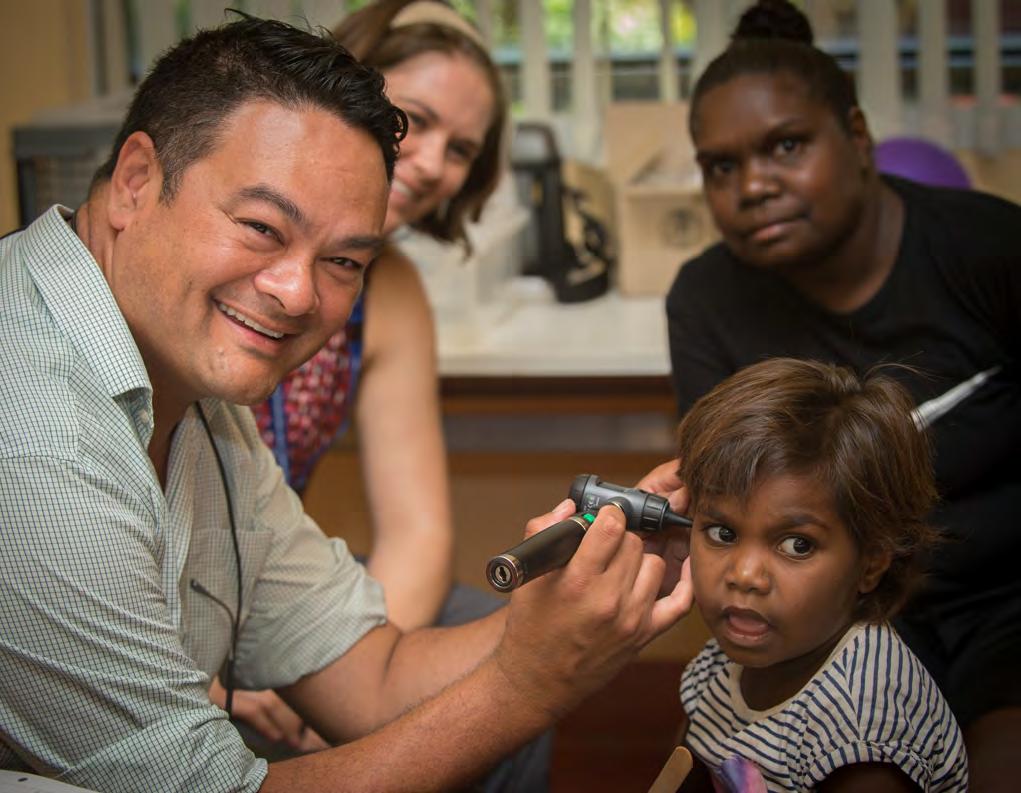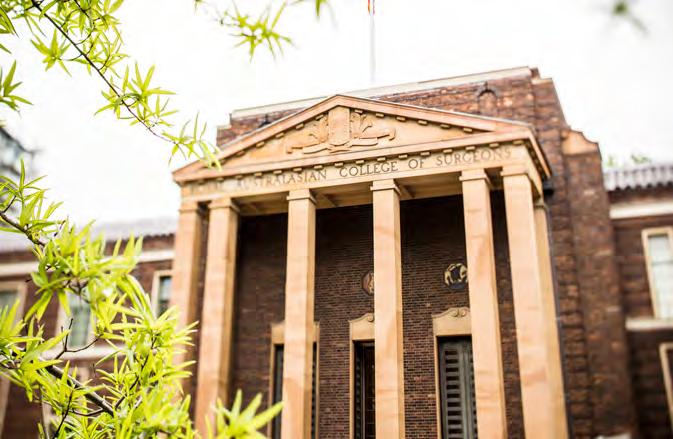
5 minute read
President’s perspective
It is hard to believe that the year is almost over. It has been a tumultuous and eventful one, framed by the ongoing pandemic. It is pleasing to see so many communities in Australia and Aotearoa New Zealand coming out of lockdowns. Despite this positive step forward, we are faced with the challenges brought about by the pandemic that have impacted negatively on the health of our communities. For example, in Victoria, we have had elective surgery restrictions imposed intermittently over the last 18 months, resulting in a growing waiting list for elective surgery in both the public and private sectors. We believe that the current stabilisation of the COVID-19 situation with high vaccination rates, fall in the number of COVID-19 cases, and the gradual reduction in hospital in-patient ICU cases presents an ideal window of opportunity for government to restore surgery to full capacity. We called on the Victorian government to address this issue urgently and we are pleased to say that elective surgery capacity was increased to 75 per cent and hopefully full capacity by the time this magazine goes to print. This successful outcome is the result of the great efforts of surgical directors, Victorian chairs of colleges and specialty associations, and the Victorian perioperative consultative council comprising of surgeons and anaesthetists.
I would like to thank our Fellows, Trainees, Specialist International Graduates, staff at the College and our patients for soldiering on in the face of so many challenges. I also extend my gratitude to the many who went out of their way to support their communities. If there is one positive we can carry forward, it is the spirit of generosity that has been so evident in the last two years of the pandemic. One of the challenges we faced during the year was running our Fellowship examinations. The Fellowship Clinical and Viva examinations took place for seven surgical specialties with 151 candidates in Australia and Aotearoa New Zealand between 5 and 7 November 2021. The examinations were delivered in a hybrid model across 23 venues involving a mix of in-person and remote examiners and observers.
Advertisement

This was a particularly challenging examination to deliver due to the constantly changing COVID-19 restrictions. Exam participants had to be COVID tested, wear N95 masks, and eye protection. Some of the changing circumstances meant that we had to cancel the plastic surgery exam in Auckland because of border closures. An enormous amount of work went into ensuring that the exams were conducted successfully with as many candidates as possible able to sit for them. More than 170 examiners, 30 local coordinators and 50 RACS staff and volunteers delivered the exam over the weekend. I thank everyone involved. It was an example of true collaboration between our staff, specialty societies, the Court of Examiners and many volunteers working together to achieve a successful event.
There are so many people who provide their time generously to the College from managing examinations, working in the Asia-Pacific to support healthcare to contributing their ideas through College committees and Council. We would not be able to run many of our activities without their valuable support. The pro bono contribution of Fellows has been, and continues to be, one of the College’s most valued assets and resources.
My thanks also to our Fellows who participated in the Council elections. I encourage you to communicate with your specialty elected Councillors, and indeed with any of us on how you can engage with and support your College. Congratulations to the re-elected councillors and new Councillor, Professor Deborah Bailey. I also take this opportunity to congratulate our new Fellows. I wish you every success as you embark on this new phase of your surgical journey. I encourage you to take time to learn more about your College and reach out to us where you need assistance. As we look forward to 2022, the RACS Council has been busy working on our strategy. We will have more to share on this when it is finalised. One of the key pillars of the strategy is the focus on supporting Indigenous health, so I am pleased to see a Surgical News issue that is dedicated to highlighting the many initiatives and people who work so hard in this area. Improving the health of Māori and Aboriginal and Torres Strait Islander people is a national priority in both our countries. Despite government initiatives, health and social inequities persist between Indigenous and non-Indigenous communities.
To address this, the College made Indigenous health a priority by incorporating it in our strategic planning. We want to address the health inequities of the Aboriginal, Torres Strait Islander and Māori populations of Australia and New Zealand. Our goal is to achieve this by increasing the number of Indigenous Trainees , building workforce capabilities, and increasing services to better meet the health needs of these communities in culturally appropriate ways. More information on our approach is detailed in our Indigenous health position paper, which can be found on our website. I believe that we have to learn more about our Indigenous communities in order to be more effective surgeons. We have some courses in this area available at RACS.
I recently attended an interesting oneday course at the University of Otago’s Māori Indigenous Health Institute (MIHI). The course was organised by Professor Suzanne Pitama, a highly respected child psychologist. The course supports health practitioners to feel informed and confident in the development of Māori competencies, with a special focus on the application of the Hui Process (a framework to enhance the doctor-patient relationship with Māori) and the Meihana Model, a framework that facilitates the fusion of clinical and cultural competencies to better serve Māori within mental health service delivery. Dr Maxine Ronald and Professor Yin Paradies also conducted a course on Indigenous Health Cultural Safety for the chairs of Surgical Training programs in October. We will include more Indigenous healthcare education in surgical training as part of the RACS Cultural Competence and Cultural Safety Competency. We also welcome announcement by Ahpra and the Medical Board of Australia to conduct an external review of patient safety issues in the cosmetic surgery sector. For far too long we’ve had a system that allows anyone with a medical degree to call themselves a surgeon. It is time to close the loopholes that bring harm to patients. I am pleased to end my message with my warmest congratulations to Dr Annette Holian on her recent appointment as the president of the Australian Orthopaedic Association. As a woman president, this appointment also gives me much pride to see the increasing diversity in our surgical profession. I wish Annette every success in her endeavours and remain committed to supporting her and other women in their leadership journeys. May the holiday season end the present year on a cheerful note and make way for a fresh and bright New Year.
Dr Sally Langley President










